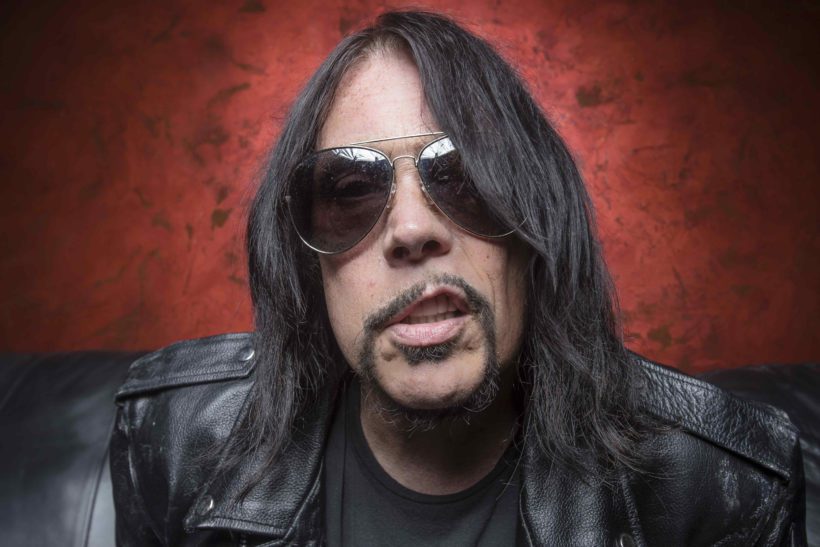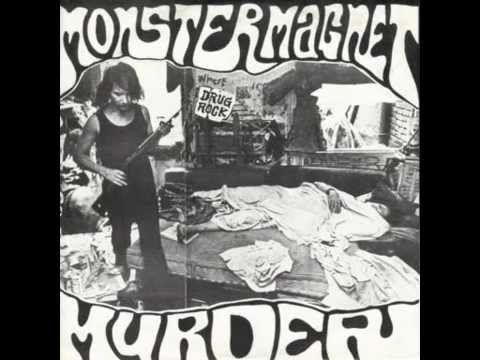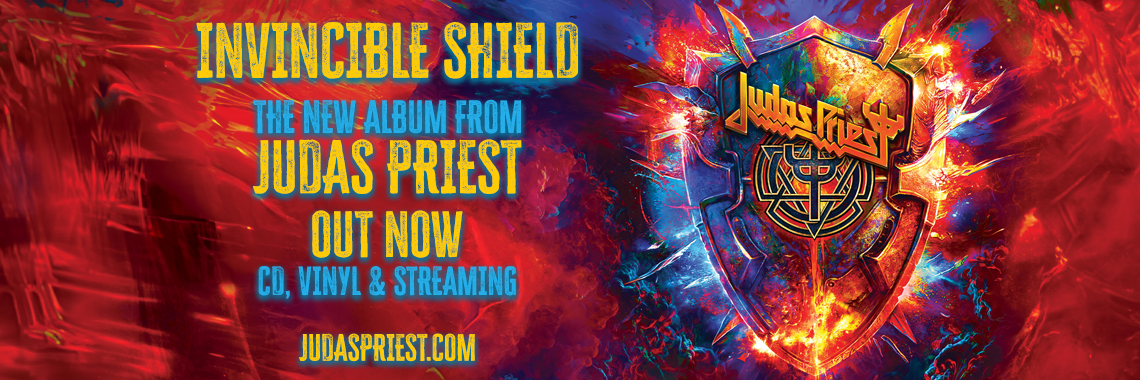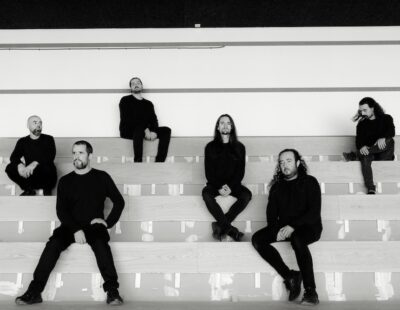
In issue #189, Decibel time-travels back to 1995 to explore heavy music at the crossroads. While melodicism stormed into extreme metal, grunge’s expiration date was approaching. As an alternative to grunge’s fading light, Monster Magnet’s Dopes to Infinity represented the future of stoner rock along with contemporaries Sleep and Kyuss. When Monster Magnet founder Dave Wyndorf spoke with Decibel for the 1995 retrospective cover story there was a wealth of quotes to choose from. Because Wyndorf is one of the best rock ‘n’ roll interviews possible, read an expansion of the conversation below. Scroll through for his thoughts on the “stoner rock” genre tag, nü-metal and volcanic Martian sex.
Decibel Magazine interview with Monster Magnet’s Dave Wyndorf
To me, 1995 seemed like a transitional year in heavy music as grunge was fading out, but it was before the arrival of nü-metal taking over. Nine Inch Nails was sending an industrial shock wave through both alternative rock and heavy music. What do you remember about the state of rock music in 1995?
Dave Wyndorf: Yeah, it was like nobody was sure what would happen. I didn’t call the nü-metal thing; I had no idea it was gonna be so big. I could see it starting to happen, but my radar was on bands like Kyuss and Fu Manchu and it looked like maybe mainstream radio would get cooler after the grunge thing. Like if it happened with that shit, maybe it could happen with other stuff too. Riff-based rock unadorned, with a crazy tinge to it. Like maybe things could get a little more outrageous, with some wilder ideas. Intelligent and stupid at the same time; stupid-smart, which is always my favorite. Little did I know that stupid was gonna win, but it always does.
Were you listening to much recent or current music in 1995?
DW: Yeah I was listening to stuff that looked cool, because I’m a huge fan. I’m really not a metal guy, I’m more of a proto-metal guy. I didn’t keep up with metal after Iron Maiden. But Butthole Surfers were still playing, and there was a lot of stuff in the air. I was paying attention to stuff that I didn’t expect to get popular, because that was usually good for me. Like wow, if these guys got attention maybe I can too! Did White Zombie come out with a record that year?
Yeah, Astrocreep: 2000 came out that year.
DW: Well there you go. Like they took that commercialized industrial sound and fused that with metal. I liked the look of Zombie, but then I’d look around and realize I don’t have anything these bands have. I was already nervous about being on a major [label] at that point. There was nobody else to team up with as part of a movement, and I wanted to, you know? There’s strength in numbers.
When you were writing for Dopes to Infinity, was there anything you wanted to change in Monster Magnet’s sound after Superjudge?
DW: It was a lot cleaner, that’s number one. I did Superjudge really fast, and wanted it to sound like a demo basically. I was freaked out to be on a major label; too freaked out. Back then signing to a major label was something you had to defend before people were like, “You suck man! You were cool like six months ago but now you suck!” I wanted it to sound as garagey as possible, and I wrote that stuff on the road tearing ass around Europe and America trying to gain a name. So it sounded really nasty. So when I listened to Superjudge after I was like, “Shit, this is too harsh, I think I want to make something pretty now.”
At that time I was sort of drunk on the notion of going down in flames on a major label. The sooner you sign to a major label, the sooner you are to the end. Like it was just a matter of time. It was stupid. So I wanted to take every idea I had in my head, that I would ever want out of a heavy psychedelic record. Any style or genre I could pull out of my ass, any idea floating around in my head that I couldn’t do on an earlier album. Because I knew I had the money; the budgets were big back then. So that was my main thing, I wanted to to sound like the definitive headphone record. So I was renting theramins and pianos, it was great and really fun.
But I’m never really happy with these things. So afterwards I was like, “You made it too pretty, what’s wrong with you?” You gotta hit that balance between the nasty and the pretty. The story of every album is that if I can be 60% happy with it, I can say I like it as much as I can. I listened to it again a couple years ago and thought it was pretty cool, it was alright. I still wish it was a little more emotional, but that’s what the next record is for. So Powertrip after it, I was trying to find a balance between all the previous records.
You’ve mentioned before that you wanted to approach different genres or sounds like Motor City garage rock or Sabbath heaviness on the same album.
DW: Surf and bossa nova, all that ‘60s stuff. I wanted to bring in bongos and surf themes and garage rock. And obviously like ‘70s mellotron and all the stuff that makes me happy listening to old records.
I feel like the bands you inspired don’t always have a well of influences as deep as yours to reference. Or at least it’s not really influence from a similar well.
DW: They just skim off the top, yeah. The people who were buying our records, I still don’t really know who they were. We’d get lumped into the metal genre because there was no place else to put us. The people who were influenced by us took certain elements and left others out, but I’m actually glad they did that. Although I would have loved to hear people doing mellotron and bossa nova between heavy riffs, it would have made my life easier and gave me someone to tour with.
I think Dopes to Infinity is one of the albums that we can trace for the genre tag of stoner rock that would surface later. When’s the first time you heard the term “stoner rock” applied to your music?
DW: Yeah, it was applied to us at first which was bizarre. In the late ‘80s we put out a single for songs called “Murder” and “Tractor.” The cover had a hippie with a gun and just had “drug rock” on it. A British writer picked it up and kept talking about drug rock, and it feels like that turned into stoner rock. I can’t claim that was all us or anything, but it felt like any time there was a band with a certain sound they applied that genre tag. We got thrown in with all that stuff. In Europe they’d call us the kings of stoner rock, and I was like, “Okay we’ll take it.” But at the same time I was a prick, and I was like, “What do you mean stoner rock? This is LSD, motherfucker!” Stoner implies lazy, but I’m not lazy. This is like meth amphetamine and speed. I can’t just vibe on a riff for ten minutes, you know? This thing has gotta go to Mars and back. It’s gotta stop off in head shops and planetary outposts and visit God and all this shit.
I was trying to cram as much imagery of my favorite stuff, all my favorite stuff, and fantasies of how I could take over the world with my favorite stuff. Like how could I take over the world with action figures, a nuclear bomb, LSD, and naked women? I think it could be done. Could I put it all into one song? I was trying to jam it all into one song. And it was music styles too. Like I wanna take The Groundhogs and jam them next to Black Sabbath and Hawkwind. I wanna put Russ Meyer next to early Steven Spielberg and Playboy Magazine and porno and biker movies all in one. On a good day, it was no problem for me to imagine riding a dinosaur in search of a woman in a fur bikini so we could blast off in a rocket ship.

I love that pastiche element. In an old interview you called it “culturally-inspired ‘me’ music.”
DW: (Laughs) That’s a good one. I think that’s too good to be mine, somebody helped me out.
You also called it Martian sex music, which is maybe a little closer. I just love that the pastiche felt so personal to you.
DW: Thanks man. I mean, I knew what you were supposed to write about in music. I grew up as an early teenager listening to Sabbath and Zeppelin and all this nutso prog. When I was finally old enough to write music it was time for punk rock, but I still had all these utopian and dystopian images in my mind. The punk rock stuff when I was playing CBGBs in 1977, you had to boil it down. There was this cynical art sensibility, so I wanted to boil the lyrics down. I didn’t write many good songs, but that process helped me later. I learned to write dystopia with a smile. Like I knew that stuff was crazy. I loved Sabbath and Zeppelin, but what else did I love? As a TV kid, what was my pure instant reaction to cool shit? I had the same love for tits as I did for a dinosaur or a tank and a jet fighter plane and a tab of LSD and a blacklight poster,. So how do I wrestle all this shit into one creation and make it personal at the same time? It was making them feel as every-day as anything else. Like, well it’s just a regular day, I’m gonna go fuck a volcano.
But I’d use metaphor too. So if I was breaking up with a girl in real life, I wouldn’t say I ruined my relationship today: I’d say I blew up the world today. If I’m sad, I wouldn’t say I’m sad, I’d say my bones are exposed on Mars and I’m dying. It served a way to be autobiographical without being lyrically boring. I’d rather be ambiguous and visually evocative.
You toured with an eclectic array of rock bands in 1995, playing with Corrosion of Conformity and Fu Manchu on the more riff-driven side, and The Deftones and Korn in the fall. It feels like your tour schedule represents the divergent paths that heavy music could have taken.
DW: Yeah it was like reading the tea leaves of the future, and I could see it by the end. I didn’t know at the beginning of 1995, but I could see at the end. The generation right below us and [Corrosion of Conformity] were completely different. They were raised on big-time hip hop and could relate to the coming nü-metal thing, they related to those beats. I’m sure [COC’s] Pepper [Keenan] would have agreed with me that that stuff sucked, and they wanted to rock. It wasn’t my thing, but it was what it was. It related to what those kids were impressed with before, and it all related to the marketing of hip hop. It was the beginning of the end of rock. It felt more like a fashion than a music thing. They’re grabbing beats and wearing these stupid, plastic track suits and this one dude is playing bagpipes. I thought, “This is shit.” I mean who the hell am I to call it shit, but there just wasn’t any humor in it.
I mean we grew up in trailer parks too, but this was the new trailer park. The old trailer park were rockers and stuff, but the new trailer park were kids born in the ‘80s. I didn’t foresee the nerd craze joining up with DJ culture either. I’m sure the nü-metal guys would hate me saying that.
I don’t think Decibel’s readers have too much affinity for nü-metal in general.
DW: Nü-metal was a concerted effort by record companies to really push a phenomenon. It wasn’t like grunge. They marketed it in a totally new way. It felt like lawyers and graphs and charts; kids right out of business school with brand new cell phones. They wanted the bands to sound the same and share the same aesthetic. I have a bunch of tattoos and I’m white with long hair, and I can kind of rap. It was sort of novel, like nobody had seen it before.
Like a bunch of replicants who heard Cypress Hill one time.
DW: I was touring with Marilyn Manson after, and it swallowed all of us up, even him. Kids made their choice, and it was Limp Bizkit, not him. The end of him and Hole, the hierarchy of that era was done. They wanted to buy the new candy, so they were force-fed replicants, as you said. You don’t like this one? Well how about this one instead?







